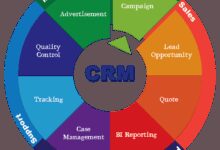B2B Omaha: 7 Powerful Strategies to Skyrocket Your Business Growth
If you’re looking to grow your business in the heart of America, ‘b2b omaha’ is more than just a keyword—it’s a gateway to real connections, strategic partnerships, and explosive growth opportunities in one of the Midwest’s most underrated economic hubs.
Understanding the B2B Omaha Landscape

Omaha, Nebraska, may not be the first city that comes to mind when thinking about major B2B hubs, but don’t let its quiet reputation fool you. The city has quietly built a robust ecosystem for business-to-business operations, especially in sectors like finance, logistics, healthcare, and technology. The term b2b omaha refers not only to companies selling products or services to other businesses within the city but also to the growing network of events, associations, and digital platforms that support these interactions.
Historical Development of B2B in Omaha
Omaha’s B2B roots go back over a century, with early foundations laid by the Union Pacific Railroad and the city’s central location in the U.S. transportation network. This logistical advantage made Omaha a natural hub for wholesale distribution and supply chain operations. Over time, industries like insurance, banking, and agribusiness expanded the B2B footprint. Companies like Mutual of Omaha and Kiewit Corporation became regional anchors, fostering subcontracting, vendor networks, and professional services ecosystems.
By the 1990s, Omaha had evolved into a center for call centers and back-office operations, thanks in part to a skilled workforce and lower operating costs. This era saw the rise of B2B service providers in IT, HR outsourcing, and financial processing. Today, that legacy continues with modern tech startups and SaaS companies joining the fray, creating a diverse and resilient B2B environment.
Key Industries Driving B2B Omaha
Several industries form the backbone of the b2b omaha economy. These include:
Financial Services: Home to Mutual of Omaha, First National Bank of Omaha, and numerous fintech startups, Omaha is a powerhouse in B2B financial solutions, including payment processing, insurance underwriting, and wealth management platforms.Healthcare and Biotech: With institutions like CHI Health and the University of Nebraska Medical Center, Omaha supports a growing network of medical device suppliers, pharmaceutical distributors, and health IT providers.Agribusiness and Food Processing: Located in the heart of the Corn Belt, Omaha is surrounded by agricultural producers.This has led to a strong B2B market in farm equipment, seed distribution, food packaging, and logistics.Technology and Software: The city’s tech scene is booming, with companies like Flywheel and Hudl offering SaaS solutions to other businesses across the country.Construction and Engineering: Kiewit Corporation, one of the largest construction firms in North America, is headquartered here, creating a ripple effect of subcontractors, material suppliers, and engineering consultants.
.Geographic and Economic Advantages
Omaha’s central U.S.location offers unparalleled logistical benefits.It’s within a one-day truck drive of 70% of the U.S.population, making it ideal for distribution centers and supply chain operations.The city also boasts one of the lowest costs of doing business in the nation, with affordable office space, competitive labor rates, and a favorable tax climate..
According to the U.S. Department of Commerce, Nebraska ranks in the top 10 states for business friendliness, thanks to its stable regulatory environment and proactive economic development incentives. These factors make b2b omaha not just a local phenomenon, but a strategic choice for national and regional B2B expansion.
Top B2B Networking Opportunities in Omaha
One of the most powerful aspects of b2b omaha is its tight-knit, collaborative business community. Unlike larger cities where networking can feel transactional, Omaha’s culture emphasizes trust, long-term relationships, and mutual growth. This section explores the most impactful networking channels available to B2B professionals in the city.
Omaha Chamber of Commerce and Industry Events
The Greater Omaha Chamber is one of the most active business organizations in the Midwest. It hosts over 100 events annually, including the Omaha Business Summit, Women’s Business Symposium, and Supplier Diversity Expo. These events are prime opportunities for B2B companies to showcase their services, meet procurement officers, and form strategic alliances.
Membership in the Chamber provides access to exclusive directories, government contracting resources, and advocacy efforts that influence regional policy. For any business serious about b2b omaha, joining the Chamber is a no-brainer. Learn more at Greater Omaha Chamber.
Industry-Specific Meetups and Conferences
Beyond the Chamber, Omaha hosts a growing number of niche events tailored to specific B2B sectors. For example:
- FinTech Nebraska: A monthly meetup for financial technology innovators, investors, and service providers.
- Hudl’s Coach Sync: While focused on sports, this event attracts B2B software vendors, data analysts, and hardware suppliers.
- AgriTech Omaha: A conference connecting agribusinesses with tech startups developing precision farming tools.
- Omaha Startup Week: An annual event featuring panels, pitch competitions, and B2B matchmaking sessions.
These gatherings are fertile ground for discovering new clients, partners, and even acquisition targets. They also reflect the city’s shift toward innovation-driven B2B models.
Digital Networking and Online Platforms
While in-person events are vital, digital platforms are increasingly shaping the b2b omaha landscape. LinkedIn groups like Omaha Entrepreneurs Network and Nebraska Tech Alliance are active forums for sharing leads, job postings, and partnership opportunities.
Additionally, local directories such as Yellow Pages Omaha and Nebraska Advantage (run by the state’s economic development office) help B2B companies increase visibility and connect with buyers. Many firms are also leveraging SEO and content marketing to position themselves as thought leaders in their niches.
“In Omaha, it’s not about who you know—it’s about who knows you. Consistency and credibility win long-term B2B relationships.” — Sarah Thompson, VP of Business Development at a local SaaS firm.
Leading B2B Companies in Omaha
The success of b2b omaha is best illustrated by the companies that have built national reputations from this Midwestern base. These organizations serve as both clients and inspirations for emerging B2B ventures.
Mutual of Omaha: A B2B Insurance Powerhouse
Founded in 1909, Mutual of Omaha is one of the most recognizable names in financial services. While best known for consumer products, the company operates a robust B2B division offering group health insurance, retirement plans, and employee benefits solutions to small and medium-sized businesses across the U.S.
Its vendor network includes IT consultants, marketing agencies, compliance auditors, and training providers—many of which are based in Omaha. The company’s procurement team regularly issues RFPs (Requests for Proposals), creating steady opportunities for local B2B firms. For more details, visit Mutual of Omaha’s official site.
Kiewit Corporation: Engineering and Construction Giant
Kiewit is a privately held construction and engineering firm with over $15 billion in annual revenue. It operates in energy, transportation, mining, and water infrastructure. As a major B2B player, Kiewit sources materials, equipment, and services from hundreds of suppliers, many of which are small and mid-sized businesses.
The company runs a formal supplier diversity program and hosts annual vendor summits to strengthen relationships. For businesses in manufacturing, logistics, or engineering consulting, getting on Kiewit’s approved vendor list can be a game-changer. Learn more at Kiewit.com.
Flywheel: Cloud Services and Data Center Innovation
Flywheel, founded in Omaha in 2007, is a leading provider of managed cloud services, data center solutions, and cybersecurity for businesses. It serves clients nationwide, including healthcare providers, financial institutions, and government agencies.
What makes Flywheel a standout in the b2b omaha ecosystem is its role as both a service provider and an enabler. It partners with other B2B tech firms to offer integrated solutions, such as HIPAA-compliant hosting for medical software companies. Its success has inspired a new generation of tech entrepreneurs in the city.
How to Build a Successful B2B Strategy in Omaha
Entering the b2b omaha market requires more than just a solid product or service. It demands a deep understanding of local culture, business etiquette, and growth channels. This section outlines a proven framework for B2B success in the region.
Conduct Local Market Research
Before launching any B2B initiative, conduct thorough market research. Identify key decision-makers, understand procurement cycles, and analyze competitors. Tools like Dun & Bradstreet Hoovers and Nebraska Business Development Center (NBDC) reports can provide valuable insights.
For example, if you’re selling SaaS to healthcare providers, research which hospitals or clinics in Omaha are investing in digital transformation. Attend local health IT forums or partner with UNMC-affiliated organizations to gain credibility.
Build Trust Through Community Engagement
Omaha businesses value relationships over transactions. Attend chamber events, sponsor local causes, or volunteer with organizations like Junior Achievement of the Midlands. These activities build goodwill and keep your brand top-of-mind when procurement decisions are made.
One B2B marketing firm in Omaha reported that 60% of their new clients came through referrals after participating in community initiatives. In a city where reputation travels fast, being seen as a contributor—not just a seller—is crucial.
Leverage Digital Marketing for B2B Omaha
While face-to-face networking is powerful, digital marketing amplifies your reach. Optimize your website for keywords like b2b omaha, Omaha B2B services, or business solutions in Nebraska. Create content that addresses local pain points—such as “How to Reduce Logistics Costs in the Midwest” or “Top IT Challenges for Omaha Manufacturers.”
Use LinkedIn Ads to target decision-makers in specific industries. A well-crafted whitepaper or case study featuring a local client can generate high-quality leads. Consider working with a local SEO agency that understands the nuances of the b2b omaha market.
Challenges Facing B2B Companies in Omaha
Despite its many advantages, the b2b omaha ecosystem is not without challenges. Understanding these hurdles is essential for long-term success.
Talent Acquisition and Retention
While Omaha has a skilled workforce, competition for top talent—especially in tech and engineering—is intensifying. Larger firms like Kiewit and Mutual of Omaha can offer higher salaries and more structured career paths, making it difficult for startups and small B2B firms to compete.
Solutions include partnering with local universities (University of Nebraska-Omaha, Creighton University) for internships, offering remote work options, and emphasizing quality of life—a major selling point in Omaha. The city’s low cost of living and family-friendly environment can be leveraged as recruitment tools.
Access to Capital
Compared to coastal tech hubs, Omaha has a smaller pool of venture capital. While angel investors and local banks are active, early-stage B2B startups may struggle to secure large funding rounds.
However, organizations like Nebraska Angels and Pipeline Enterprises are working to close the gap. Additionally, federal programs like the Small Business Innovation Research (SBIR) grants offer non-dilutive funding for tech-driven B2B ventures. More info at SBIR.gov.
Market Saturation in Certain Sectors
Some B2B niches, such as accounting, legal services, and IT support, are highly competitive in Omaha. Standing out requires differentiation—whether through specialization, superior customer service, or innovative pricing models.
For example, a B2B IT firm might focus exclusively on cybersecurity for medical practices, positioning itself as a niche expert rather than a generalist. This approach reduces competition and increases perceived value.
Future Trends Shaping B2B Omaha
The b2b omaha landscape is evolving rapidly. Several trends are poised to redefine how businesses interact, sell, and grow in the coming years.
Rise of Remote B2B Collaboration
The pandemic accelerated remote work, and many B2B interactions in Omaha have shifted to virtual platforms. Zoom meetings, digital contract signing, and cloud-based project management tools are now standard.
This trend allows Omaha-based firms to compete nationally without relocating. A software company in Omaha can serve clients in New York or California just as effectively as a local vendor, reducing geographic barriers and expanding market reach.
Growth of AI and Automation in B2B Services
Artificial intelligence is transforming B2B operations in Omaha. From chatbots handling customer inquiries to predictive analytics optimizing supply chains, AI is becoming a core component of competitive advantage.
Local startups are developing AI-driven tools for fraud detection in finance, inventory forecasting for retailers, and automated compliance reporting. Companies that adopt or offer AI-enhanced services will likely lead the next wave of b2b omaha innovation.
Sustainability and ESG in B2B Decision-Making
Environmental, Social, and Governance (ESG) factors are increasingly influencing B2B purchasing decisions. Large corporations are requiring suppliers to meet sustainability standards, report carbon emissions, and demonstrate ethical labor practices.
Omaha businesses that proactively adopt green practices—such as energy-efficient offices, sustainable packaging, or diversity initiatives—will gain a competitive edge. This is especially true when bidding for contracts with national or global firms.
How to Get Started in B2B Omaha: A Step-by-Step Guide
Ready to dive into the b2b omaha market? Follow this actionable roadmap to launch or scale your B2B presence effectively.
Step 1: Define Your Niche and Value Proposition
Clearly articulate what problem you solve, for whom, and why you’re better than alternatives. Avoid generic claims like “we offer great service.” Instead, focus on measurable outcomes: “We reduce IT downtime by 40% for mid-sized manufacturers.”
Research local pain points. For example, if many Omaha manufacturers struggle with supply chain delays, position your logistics software as a solution tailored to Midwest challenges.
Step 2: Register Your Business and Obtain Licenses
Register your business with the Nebraska Secretary of State and obtain any necessary local permits. If you’re selling services, you may need a sales tax permit from the Nebraska Department of Revenue.
Consider forming an LLC for liability protection. The process is straightforward and can be completed online at Nebraska Secretary of State.
Step 3: Join Key Business Organizations
Become a member of the Greater Omaha Chamber, your industry association, and local networking groups. Attend at least one event per month to build visibility and relationships.
Volunteer for committees or speak at panels to establish yourself as an expert. These efforts compound over time, leading to referrals and partnerships.
Step 4: Launch a Targeted Marketing Campaign
Develop a multi-channel marketing strategy combining digital and traditional methods. Optimize your website for b2b omaha and related keywords. Publish blog posts, case studies, and videos that showcase your expertise.
Run LinkedIn ads targeting job titles like “Procurement Manager” or “IT Director” in Omaha-based companies. Offer a free consultation or audit to convert interest into leads.
Step 5: Track, Measure, and Scale
Use CRM software like HubSpot or Salesforce to track leads, deals, and customer interactions. Set KPIs such as lead conversion rate, customer acquisition cost, and lifetime value.
Once you’ve validated your model, reinvest profits into scaling—hiring sales reps, expanding service offerings, or entering new markets. The b2b omaha ecosystem rewards persistence and smart growth.
What is B2B Omaha?
B2B Omaha refers to the network of businesses in Omaha, Nebraska, that sell products or services to other businesses. It encompasses industries like finance, tech, healthcare, construction, and agribusiness, supported by a strong culture of collaboration, networking, and innovation.
How can I network in the B2B Omaha community?
The best ways to network include joining the Greater Omaha Chamber, attending industry-specific events like FinTech Nebraska or Omaha Startup Week, and participating in online groups on LinkedIn. Consistent engagement and community involvement are key to building trust.
What are the biggest B2B companies in Omaha?
Major B2B players in Omaha include Mutual of Omaha (financial services), Kiewit Corporation (construction and engineering), and Flywheel (cloud and IT services). These companies not only serve national markets but also support a vast network of local suppliers and partners.
Is Omaha a good place to start a B2B company?
Yes, Omaha offers a low cost of doing business, a skilled workforce, strong logistical advantages, and a supportive entrepreneurial ecosystem. While access to venture capital is limited compared to coastal cities, the city’s stability and quality of life make it an attractive launchpad for B2B ventures.
What industries are thriving in B2B Omaha?
Thriving sectors include financial technology, healthcare IT, agribusiness, construction, and software-as-a-service (SaaS). The city’s central location and business-friendly environment make it ideal for logistics, distribution, and B2B service providers.
Omaha may not make national headlines like Silicon Valley or New York, but for savvy B2B professionals, b2b omaha represents a golden opportunity. With its strong industrial base, collaborative culture, and strategic location, the city is quietly becoming a powerhouse for business-to-business innovation. Whether you’re a startup founder, a sales executive, or a service provider, the tools, networks, and opportunities are here—ready for you to tap into. The future of B2B growth isn’t always loud; sometimes, it’s building quietly in the heartland.
Further Reading:









